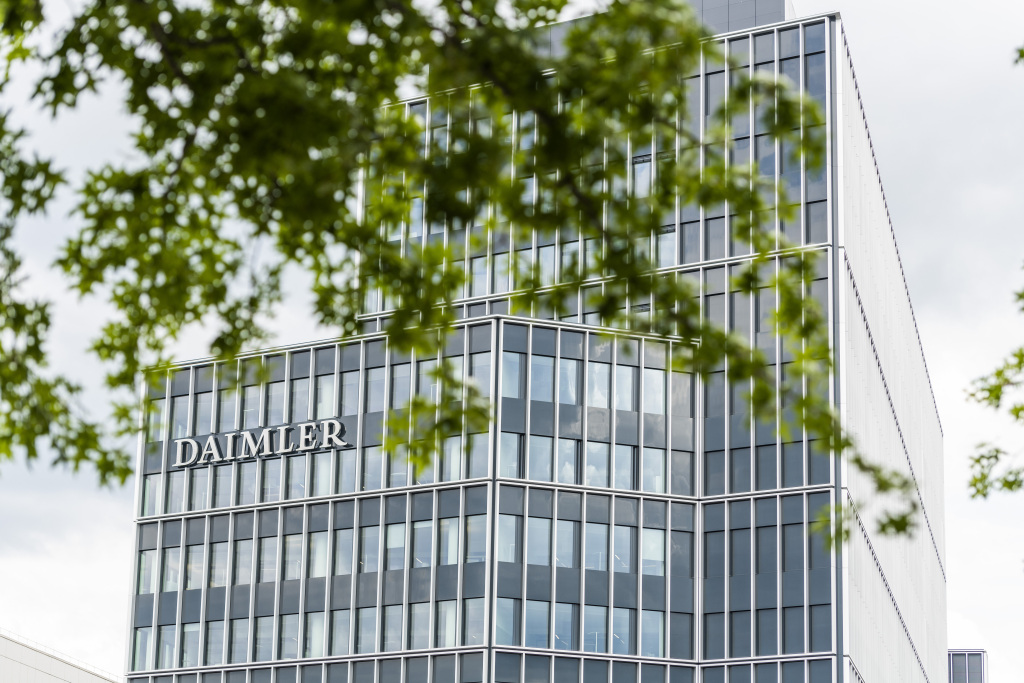The interim reports are already out for the major truck manufacturers and they make grim reading.
For the first six months of the year, sales at Scania were down by 24% with MAN falling 26%. This meant that instead of last year’s EU248 million profit at MAN for the first half of the year, the company was hit by a EU423 million loss. Scania’s income was down 70% for the same period
Even the service business was down in revenue – but only by some 5% at Scania.

Daimler AG Headquarters Stuttgart, Germany
The good news is that the order books look strong – although the companies are having to ramp up production from low rates to meet the sales that have been made.
Both companies are hesitant to make any statements about the rest of the year. Scania said:
“With quick and decisive actions, the brakes were hit on a large number of projects and activities, in order to reduce cost and preserve cash. Estimating the long-term effects of this crisis is difficult and it will take a long time before demand returns to pre-crisis levels.”
According to MAN: “The continuing COVID-19 pandemic and the repercussions it has for the economic environment make concrete statements on the expected future business developments extremely difficult. The impact of the COVID-19 pandemic on customer demand and supply chains still cannot be estimated with any degree of reliability, not least because of the possibility of a further rise in infection rates in Europe or other regions of the world.”
Mercedes-Benz trucks owner, Daimler reported a reduction in sales of 55% in Q2 in its truck division which led to a loss of -EU747 million compared to a profit of EU834 million. In a statement the company said: “Declining volumes had a strong impact on earnings while restructuring activities, which will improve long-term competitiveness, helped reduce fixed costs significantly. Encouragingly, order intake is now developing positively in nearly all core regions.”
DAF’s parent company, PACCAR also put on a brave face with income down to $147 million for the second quarter of the year compared to last year’s $619 million. This was after incomes falling in the first quarter from $629 to $359 this year.
PACCAR’s net sales were down roughly 50% on the previous year, but such is the financial strength of the company it announced a dividend payment.
According to the company, “PACCAR is in excellent financial position, with manufacturing cash and marketable securities of $4.17 billion at June 30, 2020 and bank facilities of $3.0 billion,” The company has credit ratings of A+/A1.
PACCAR’s Board of Directors declared a regular quarterly cash dividend of thirty-two cents ($.32) per share, payable on September 1, 2020, to stockholders of record at the close of business on August 11, 2020.
Harry Wolters, DAF president, said, “Customer demand for fuel-efficient DAF XF, CF and LF trucks bounced back in May and June as the European economies improved.” European truck industry registrations in the above 16-tonne market are estimated to be in a range of 190,000-220,000 vehicles this year.
Volvo Group saw their Truck sales down by 45% for the second quarter and -34% for the first half of the year, whilst service sales were down 14% for the quarter and 7% for the first six months.
Volvo appeared to suffer worse than Renault Trucks whose order intake for the first six months of 2020 was only down by 22% compared to a drop of 30% by Volvo.
As you would expect, none of the manufacturers have had a great six months. Extended factory closures, restructuring of businesses and working practices, problems in parts supply mean that they have all had a bad time.
However, they all look in a strong financial situation and, assuming we have seen the back of COVID restrictions in Europe at least, they are all set to make up for lost ground in the sales and maintenance of their trucks.
